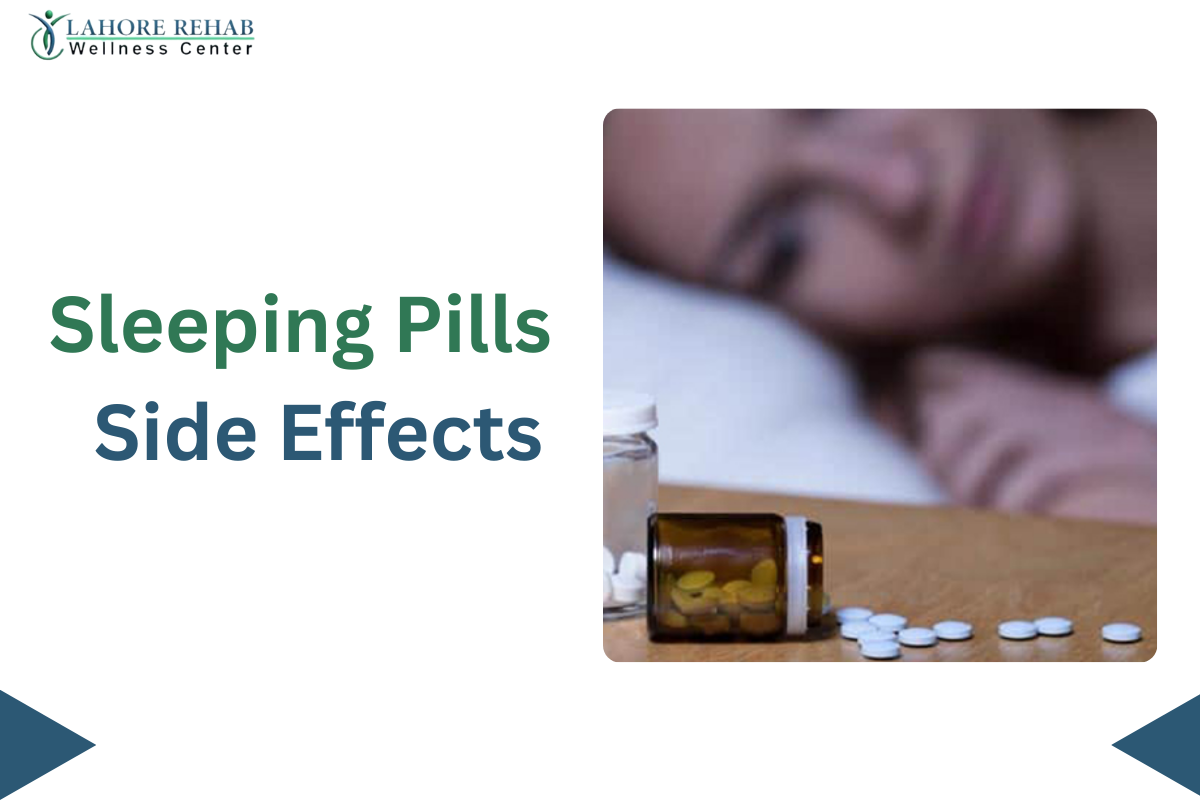
For many, a good night’s sleep feels like a distant dream. When insomnia creeps in, the allure of sleeping
pills can be strong. However, before reaching for those pills, it is crucial to understand the potential
sleeping pills side effects. This blog dives deep into this topic, addressing concerns specific to both men
and women, along with potential risks to your liver and heart. Additionally, we will explore alternative
solutions to help you achieve restful sleep naturally.
Sleeping pills, also known as hypnotics, are medications prescribed to treat short-term sleep problems
like insomnia. They work by altering brain chemicals to induce sleep or promote longer sleep duration.
While they may offer some relief initially, sleeping pills side effects can outweigh the benefits in the long
run.
Daytime Drowsiness: One of the most frequent complaints is feeling groggy or sluggish the next day.
This can significantly impact your ability to function at work, school, or even while driving, increasing the
risk of accidents.
Dizziness and Balance Problems: Sleeping pills can affect your coordination and balance, which can lead
to falls, especially in older adults.
Headaches: These are a common side effect, particularly with some types of sleeping pills.
Digestive Issues: Constipation, heartburn, nausea, and stomach upset are all potential side effects.
Dry Mouth: This can be uncomfortable and make it difficult to swallow.
Unusual Dreams: Vivid or even disturbing dreams can occur with some sleeping pills.
Memory and Thinking Problems: Sleeping pills may impair your ability to concentrate, focus, and
remember things clearly.
Erectile Dysfunction: Some sleeping pills can interfere with your ability to achieve or maintain an
erection.
Decreased Sex Drive: Sleeping pills may lower your libido.
Irregular Periods: Sleeping pills can disrupt your menstrual cycle.
Sleepwalking: Women may be more susceptible to sleepwalking while taking sleeping pills.
Serious Side Effects
While less common, some sleeping pills side effects can be severe and require immediate medical
attention. These include:
Severe allergic reactions: Symptoms like hives, swelling of the face or throat, and difficulty breathing
necessitate seeking emergency help.
Sleep-related behaviors: Engaging in activities like sleepwalking, sleep-driving, or even sleep-eating
while not fully conscious can be dangerous.
Respiratory depression: In rare cases, sleeping pills can slow down your breathing, which can be life-
threatening.
While sleeping pills can help you drift off, long-term use can strain your liver, leading to potential
problems:
Elevated Liver Enzymes: An early warning sign of liver stress, indicating potential damage.
Hepatitis: Inflammation of the liver caused by medication, with symptoms like fatigue and jaundice.
Fatty Liver Disease: Excess fat buildup in the liver, a risk factor for more serious liver conditions.
Certain sleeping pills can disrupt your heart’s rhythm, raising concerns:
Irregular Heartbeat: Sleeping pills can interfere with electrical signals regulating your heartbeat.
Increased Blood Pressure: Some medications may cause a rise in blood pressure, straining your heart.
Heart Attack Risk: Studies suggest a possible link between long-term use and increased heart attack risk,
especially for those with pre-existing risk factors.
If you find yourself struggling to stop using sleeping pills, it’s important to seek professional help. Lahore
Rehab & Wellness Center offers comprehensive sleeping pills addiction treatment programs designed to
help you safely withdraw from medication and develop healthy sleep habits.
Our team of addiction specialists will work with you to create a personalized treatment plan that
addresses your unique needs. Treatment may include:
Medical Detoxification: If needed, a medically supervised detox program can help you safely manage
withdrawal symptoms.
Individual Therapy: Therapy sessions will explore the underlying causes of your sleep problems and
develop coping mechanisms for managing stress and anxiety.
Group Therapy: Connecting with others struggling with similar challenges can provide support and
encouragement.
Relapse Prevention Planning: Developing strategies to prevent future reliance on sleeping pills is crucial
for long-term recovery.
Here are some tips to get you started:
Establish a Regular Sleep Schedule: Go to bed and wake up at the same time each day, even on
weekends. This helps regulate your body’s natural sleep-wake cycle.
Create a Relaxing Bedtime Routine: Wind down before bed with calming activities like taking a warm
bath, reading a book, or practicing relaxation techniques like deep breathing or meditation. Avoid screen
time for at least an hour before sleep as the blue light emitted from electronic devices can disrupt your
sleep cycle.
Optimize Your Sleep Environment: Make sure your bedroom is dark, quiet, cool, and clutter-free. Invest
in blackout curtains, earplugs, and a comfortable mattress and pillows.
Regular Exercise: Physical activity can improve sleep quality, but avoid strenuous workouts close to
bedtime.
Limit Caffeine and Alcohol: Both caffeine and alcohol can interfere with sleep. Avoid caffeine in the
afternoon and evening, and limit alcohol consumption, especially close to bedtime.
Manage Stress: Chronic stress is a major contributor to sleep problems. Develop healthy coping
mechanisms to manage stress, such as yoga, meditation, or spending time in nature.
Cognitive Behavioral Therapy for Insomnia (CBT-I): This form of therapy can be highly effective in
addressing the root cause of sleep problems and developing healthy sleep habits.
If you’re struggling with insomnia and considering sleeping pills, Lahore Rehab & Wellness Center
encourages you to explore natural sleep solutions first. Our team of sleep specialists can provide
personalized guidance and support to help you achieve restful sleep without relying on medication.
We offer a variety of services, including:
Sleep Consultations: Our sleep specialists will conduct a comprehensive evaluation to understand your
sleep problems and recommend the best course of action.
Sleep Studies: If necessary, we can perform a sleep study to diagnose any underlying sleep disorders
that may be contributing to your insomnia.
Stress Management Programs: We offer various programs to help you manage stress and anxiety,
which can significantly improve sleep quality.
Nutritional Counseling: A balanced diet can promote better sleep. Our nutritionists can guide dietary
choices to optimize sleep health.
Remember, a good night’s sleep is essential for your overall health and well-being. Don’t hesitate to
reach out to Lahore Rehab & Wellness Center for sleeping pills addiction treatment in Lahore. We are
here to help you find a safe and effective solution for a restful night’s sleep.
Contact Lahore Rehab & Wellness Center today to schedule a consultation with a sleep specialist and
start your journey towards a better night’s sleep. We offer personalized sleeping pills addiction
treatment in Lahore, and a variety of resources to help you achieve long-term sleep health.

0312-7867255
0303-7867255
042-32217633
Lahore Rehab Center